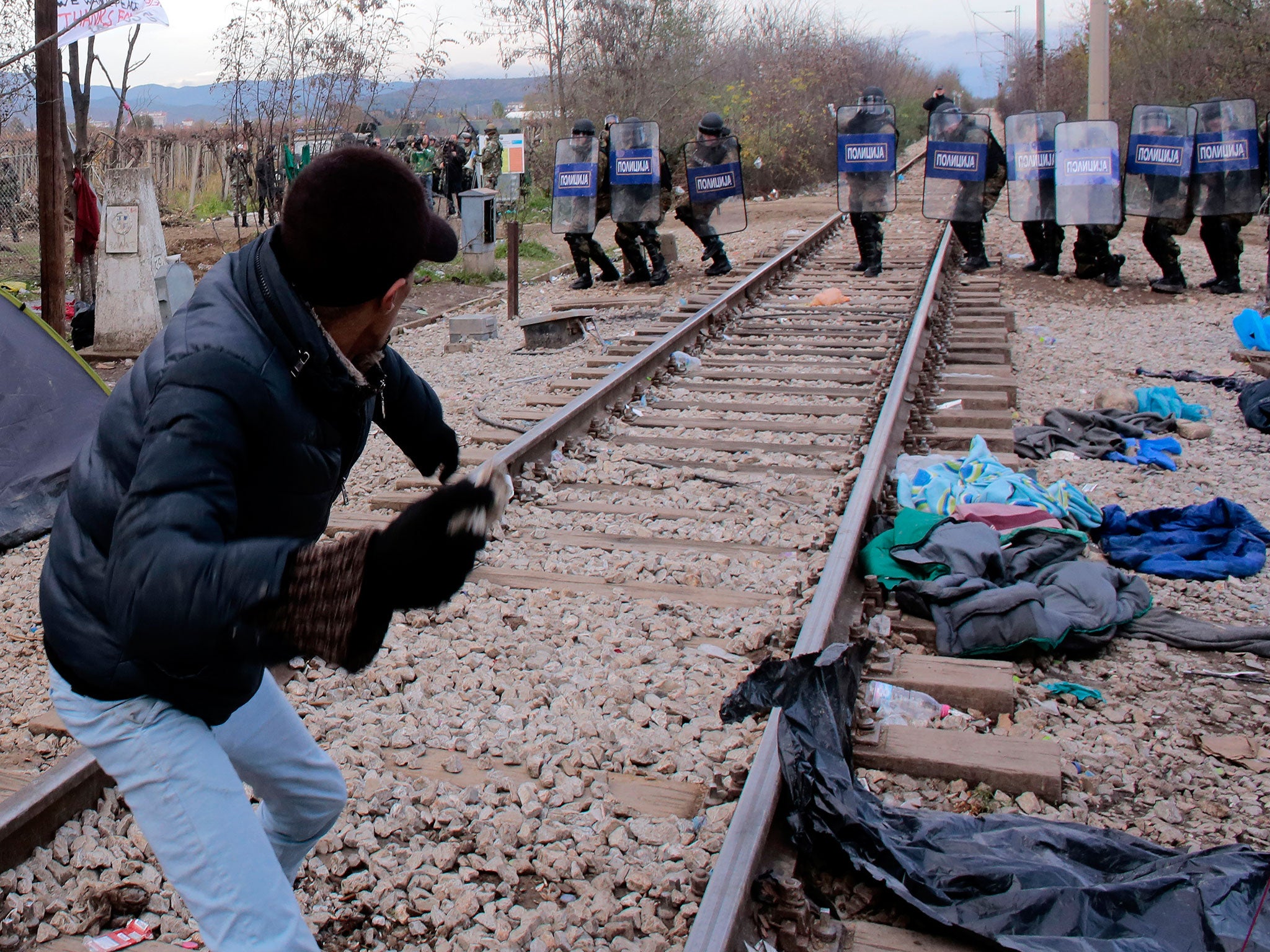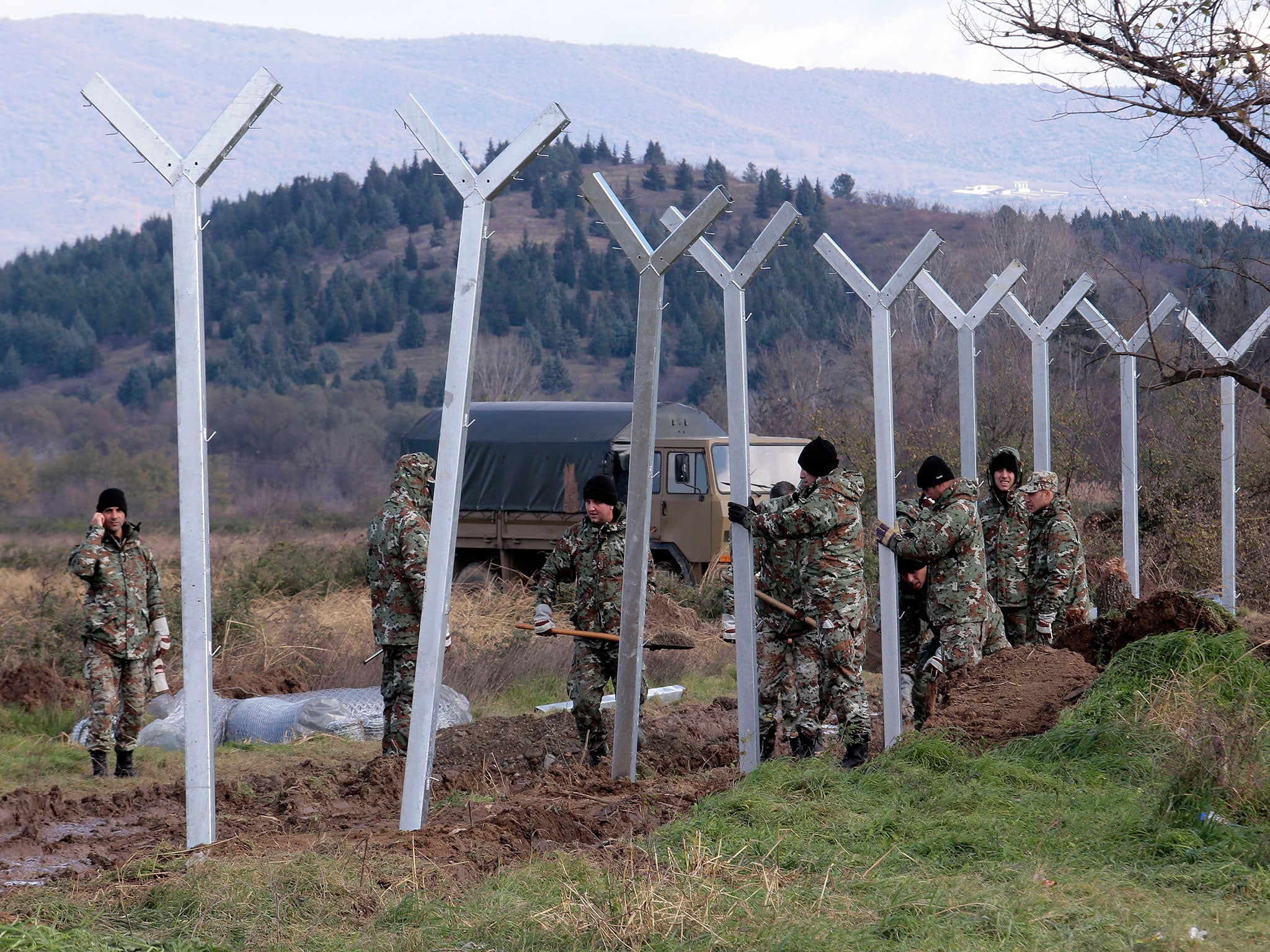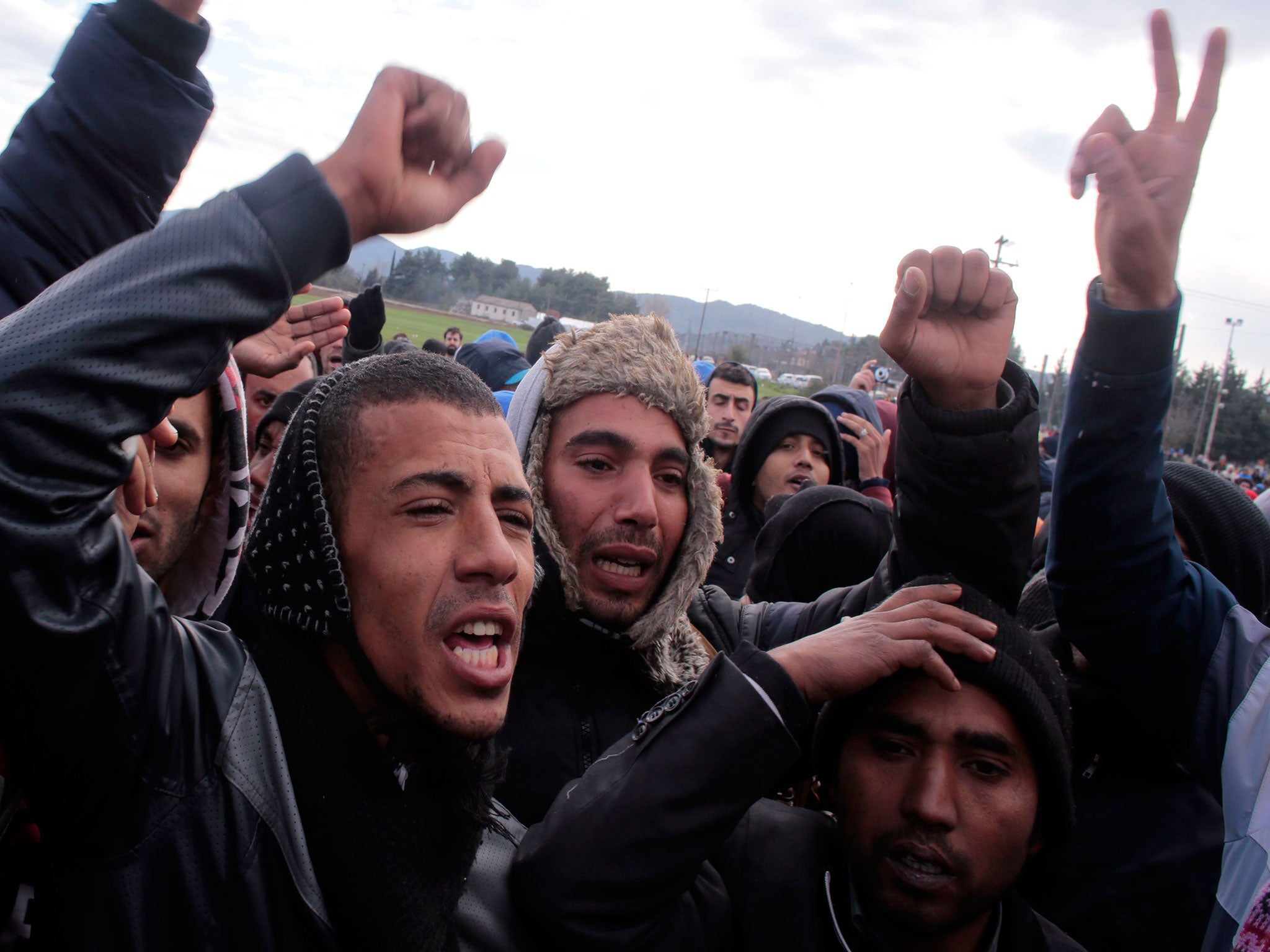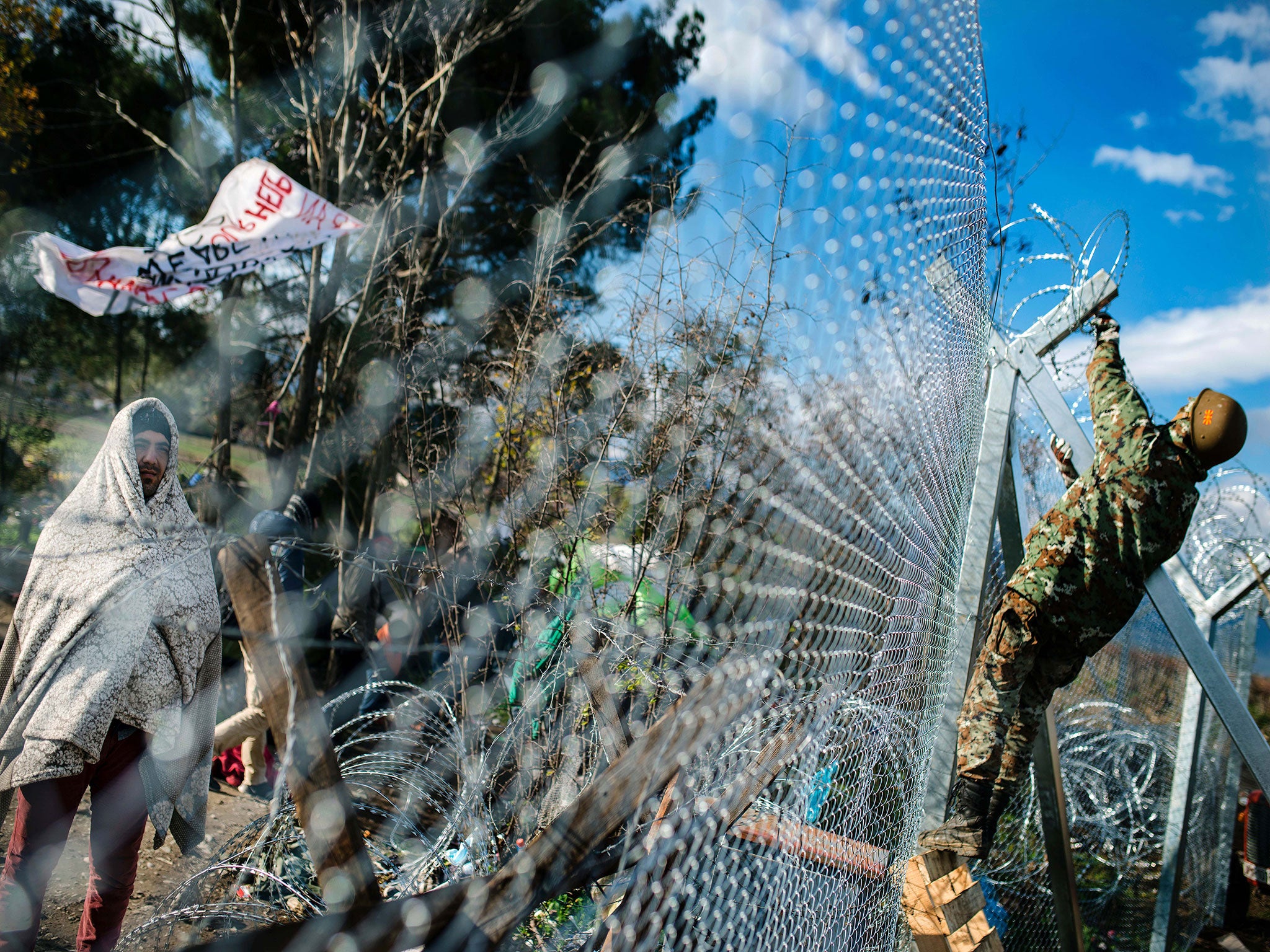Refugee crisis: Clashes as Macedonia begins building border fence to keep people out
Hundreds left stranded after country seeks to enforce tougher rules for entering the country

Your support helps us to tell the story
From reproductive rights to climate change to Big Tech, The Independent is on the ground when the story is developing. Whether it's investigating the financials of Elon Musk's pro-Trump PAC or producing our latest documentary, 'The A Word', which shines a light on the American women fighting for reproductive rights, we know how important it is to parse out the facts from the messaging.
At such a critical moment in US history, we need reporters on the ground. Your donation allows us to keep sending journalists to speak to both sides of the story.
The Independent is trusted by Americans across the entire political spectrum. And unlike many other quality news outlets, we choose not to lock Americans out of our reporting and analysis with paywalls. We believe quality journalism should be available to everyone, paid for by those who can afford it.
Your support makes all the difference.Stranded refugees have attacked Macedonian police with stones, as authorities began erecting a fence to prevent them entering the country.
Officers responded by firing stun grenades and rubber bullets as up to 40 people on the Greece-Macedonia border were injured in the brief but intense clashes, according to reports.
Macedonian authorities said 18 soldiers were injured, with two taken to hospital, while around 20 refugees were also hurt.
The unrest was reportedly prompted when a 24-year-old Moroccan suffered severe burns when he received an electric shock at the top of train carriage, leaving him in a serious condition in hospital.
Many have been stranded at the border since Macedonia decided earlier this month, along with Serbia, Croatia and Slovenia, to let through only those from the "warzone" countries of Afghanistan, Iraq and Syria.

More than 600,000 refugees and other migrants from the Middle East, Africa and Asia have entered Europe through Greece this year, many after making the short sea crossing from Turkey. Most of them continue on a long trek through the Balkans toward the promised lands of central and northern Europe.

The injured man's Moroccan compatriots formed the bulk of around 250 people who started throwing stones at Macedonian police. Also among the 800 who are stuck at the border are citizens of Algeria, Tunisia, Lebanon, Yemen, Iran, Pakistan, Bangladesh, Somalia and Congo.
Greek police did not intervene to stop those throwing stones but did, at one point interpose themselves to protect their Macedonian colleagues, as the migrants would not target the Greeks.
The clash ended in less than an hour when other migrants intervened, holding white clothing as a sign of peace.
Macedonian government spokesman Aleksandar Gjorgjiev told The Associated Press the country has started to erect a fence on its southern border with Greece in order to prevent illegal crossings and to channel the flow of migrants through the official checkpoint.
Gjorgjiev said "the border will remain open and all migrants from the war-affected zones will be allowed to enter."
The migrants are camped along the railway tracks, blocking rail traffic for the 11th consecutive day.

"I have been here for 10 days with my two sons. We have decided to return to Athens and see what we will do," said 41-year-old Fatemeh, from the Iranian city of Ahwaz. She declined to give her last name, for fear of reprisals.
"There is no way to return to Iran, only prison awaits us," she said. "We understand that the Syrians, the Afghans and the Iraqis are at war, but we also have a big political problem. There is no freedom in our country."
Additional reporting by Associated Press
Join our commenting forum
Join thought-provoking conversations, follow other Independent readers and see their replies
Comments